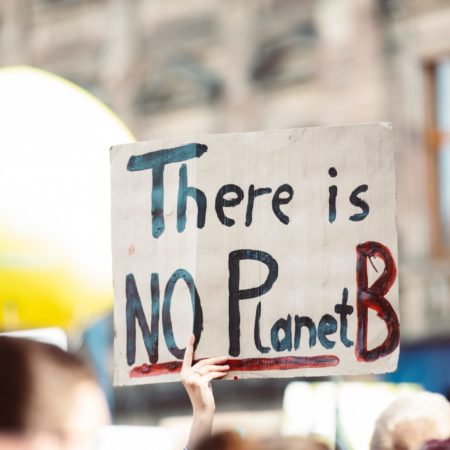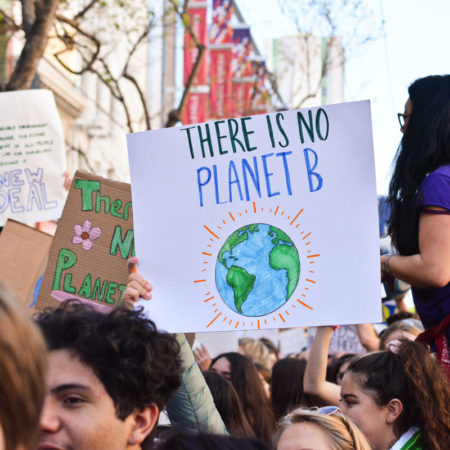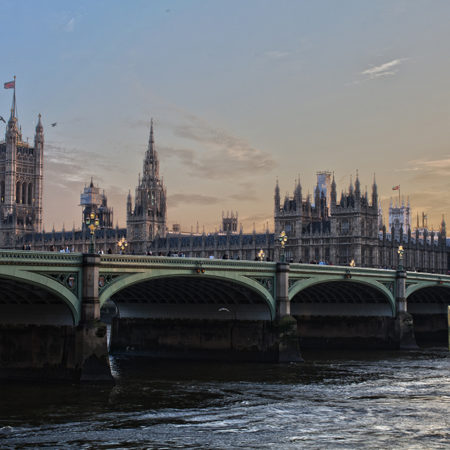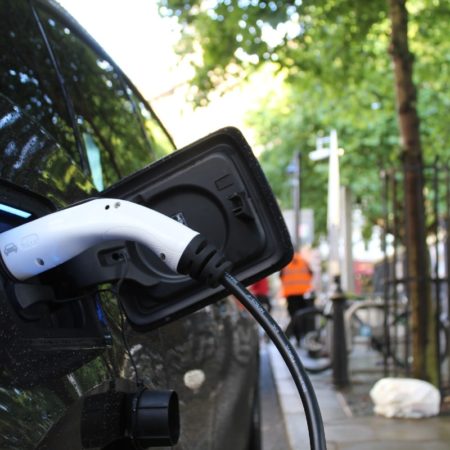Recent scorching weather across the UK and Europe has led many to conclude we are now seeing concrete evidence of human-led global warming.
Certainly, scientific opinion thinks so. Talking with Euro News, Dr Friederike Otto, a senior lecturer in climate science at the UK’s Grantham Institute for Climate Change and the Environment, said: “I think we can very confidently say that every heatwave occurring today has been made more intense and more likely because of climate change.”
Otto’s estimates suggest a heatwave that would have had a one in ten chance of occurring in any given year in the pre-industrial climate, will now occur almost three times more frequently on average and be 1.2C hotter. A heatwave that would have struck one in 50 times will strike five times more often.
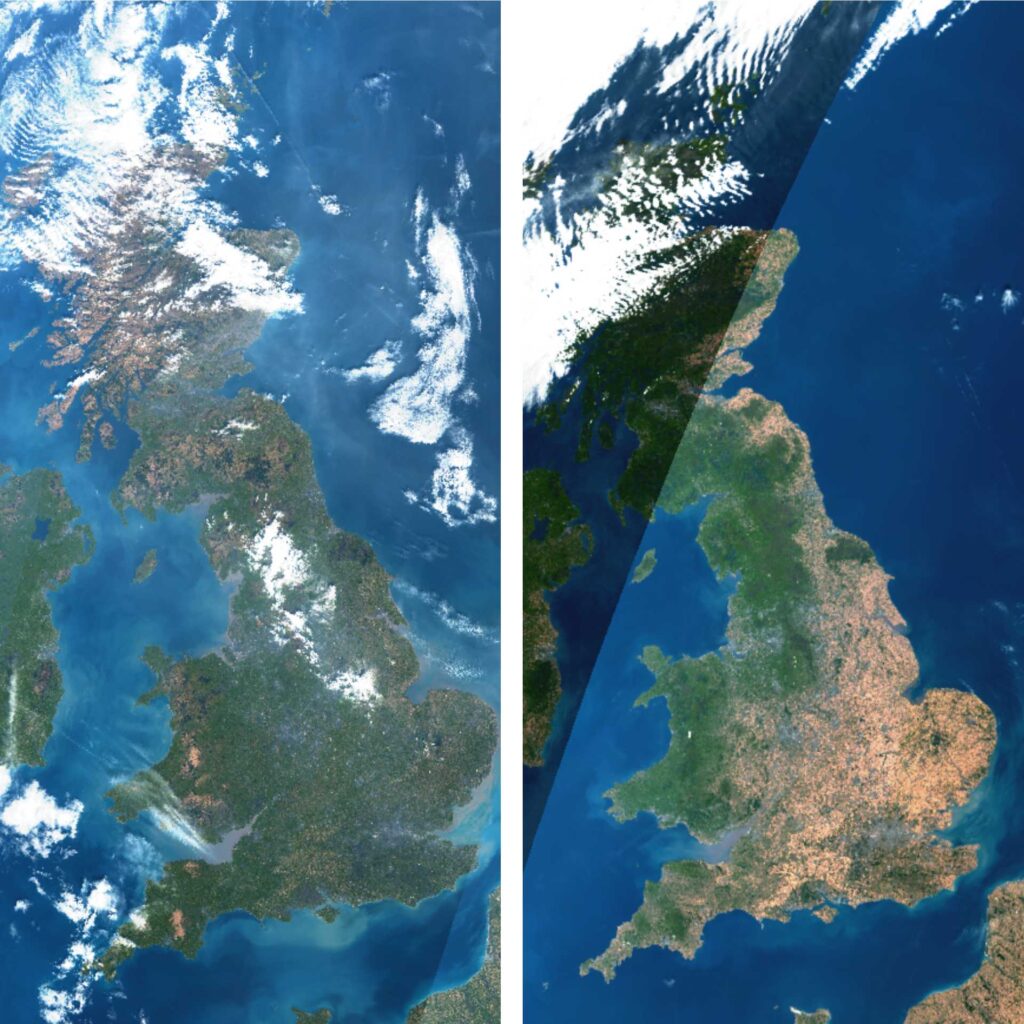
Alex Deakin from the Met Office is in no doubt either. The meteorologist told Sky News: “We’ve had hot spells in the past. But what is absolutely clear is that these hot spells, these heatwaves are becoming more intense, more frequent. The science is absolutely clear that climate change has its fingerprints all over this current hot spell.”
He added: “What we know is that 40C is now ten times more likely in the UK than it would be under a naturally-varying climate.”
Professor Emily Shuckburgh, Director of Cambridge Zero, the University of Cambridge’s major climate change initiative, told Channel 4 News: “I’m worried that, the world over, policymakers are simply not taking the threat of climate change seriously enough.”
“We’re now seeing the impacts of climate change occurring in every single region of the world. Heatwaves, as we’re experiencing at the moment; flooding events as we’ve seen repeatedly impact communities across the world including in the UK; devastating wild fires that we’ve also seen causing devastation to communities. This isn’t a problem of the future, it’s a problem of today.”
The scientific community then, in whom policymakers and business should trust, stands as one. If, as Shuckburgh believes, policymakers aren’t taking climate threats seriously enough, is this now a call to arms for businesses to act?
Can business take the lead?
Most in the business community will agree heatwaves are a fundamental concern. From dangerous working conditions to supply chain, transport and logistical complications, these are climate impacts business must take seriously.
McKinsey argues that the most significant outcome of COP26 may not have been the formal agreement hammered out by diplomats in the main plenary hall, but the momentum that emerged from the meetings and conversations among global business leaders that took place along the sidelines.
The hint is business can act where government can’t, and faster. Corporates are shackled neither by voters, short political cycles nor spin. McKinsey believes the sheer size of the private-sector turnout at COP26 suggested that industry was no longer prepared to stand by and wait for government action.
And tackling the problem comes with vast opportunities, let alone the necessity of minimising future harsh weather events. McKinsey analysis found that capital spending to reach net zero emissions would need to increase from $5.7 trillion annually today to $9.2 trillion annually over the next three decades.
That is an estimated increase of $105 trillion over 30 years. Such a massive reallocation of capital would likely trigger a period of rapid innovation and growth, likely reshaping entire industries and revolutionising the way businesses create value across industries; all good news.
Change can’t come fast enough in practical ways too. Other commentary notes that companies aren’t doing enough to address how elements affected by heatwaves such as water availability will impact on their operations.
“A large proportion of businesses still have the mindset that water will always be available to them whenever and wherever they need it, and that they don’t need to manage it like other issues,” global director of water security at disclosure not-for-profit CDP Cate Lamb said.
Recent research by CDP found that for 68 per cent of the 1,112 publicly listed companies disclosing on water, water shortages could generate a substantive impact on their business.
The maximum potential financial impact was estimated at US$225 billion, while the cost of response was US$119 billion. More than half of businesses surveyed anticipate that issues around water could limit the growth of their business, either by reducing or disrupting production capacity, closing operations or constraining growth.
Tackle the endgame now
The message for corporates must be one of utmost urgency. You can lead with pace and passion on climate without the limitations imposed by politics.
The World Economic Forum (WEF) and Reuters say Europe, the US and China are all suffering heatwaves, which scientists say have been made more frequent and intense by climate change.
‘Countries agreed under the global 2015 Paris Agreement to cut emissions fast enough to limit global warming to 2°C and aim for 1.5°C, to avoid its most dangerous impacts. Current policies would not cut emissions fast enough to meet either goal,’ writes WEF.
Policy is insufficient for need. In the course of researching this article, your author found not one credible source attributing recent weather to anything but human-centric global warming.
Business must take the mantle from government and drive faster, more meaningful, more potent climate action.












